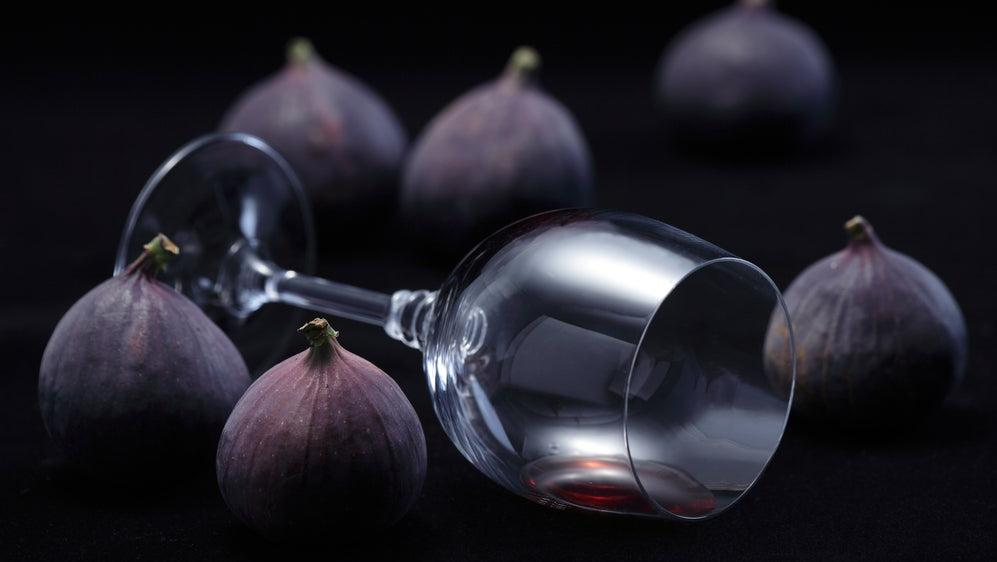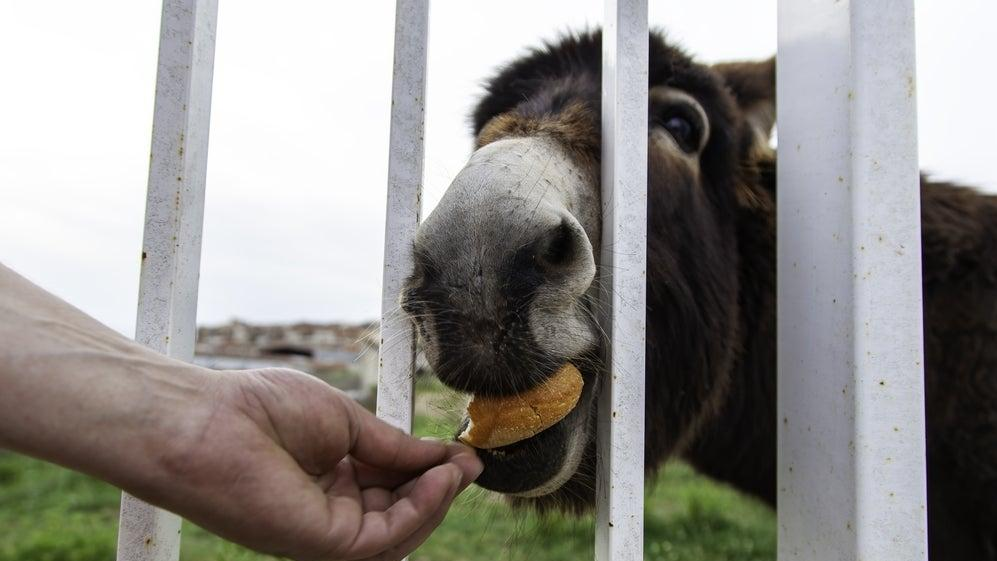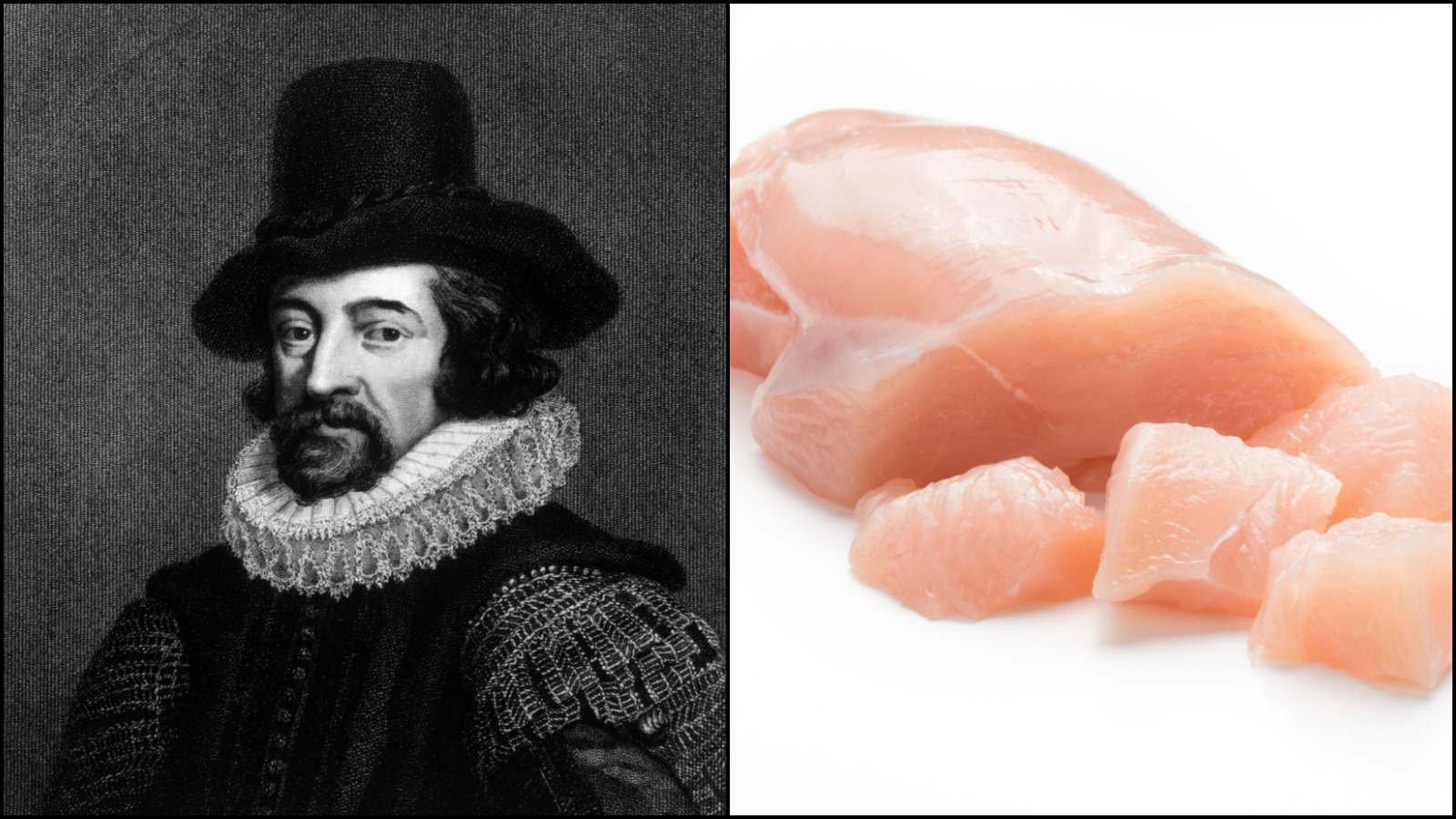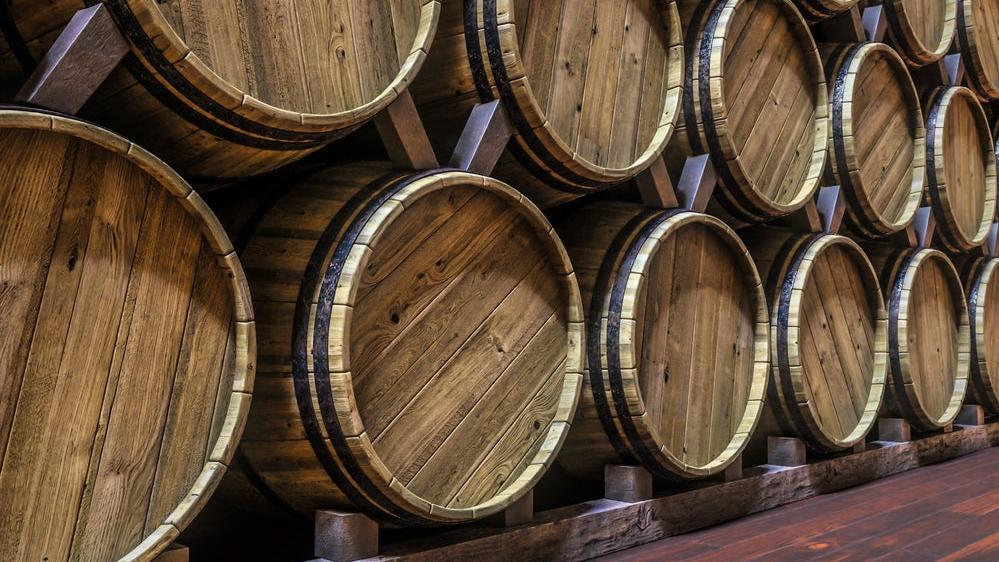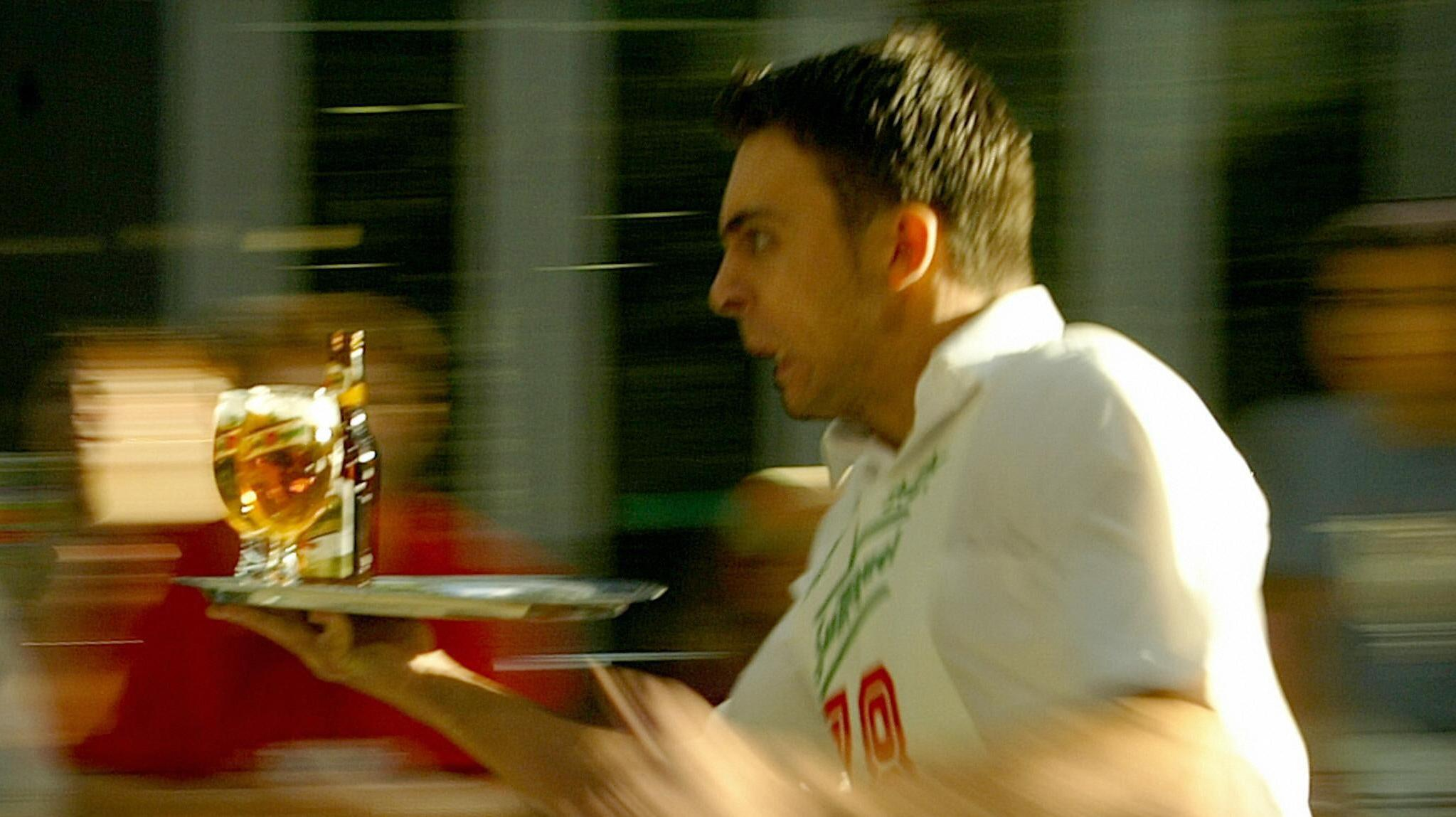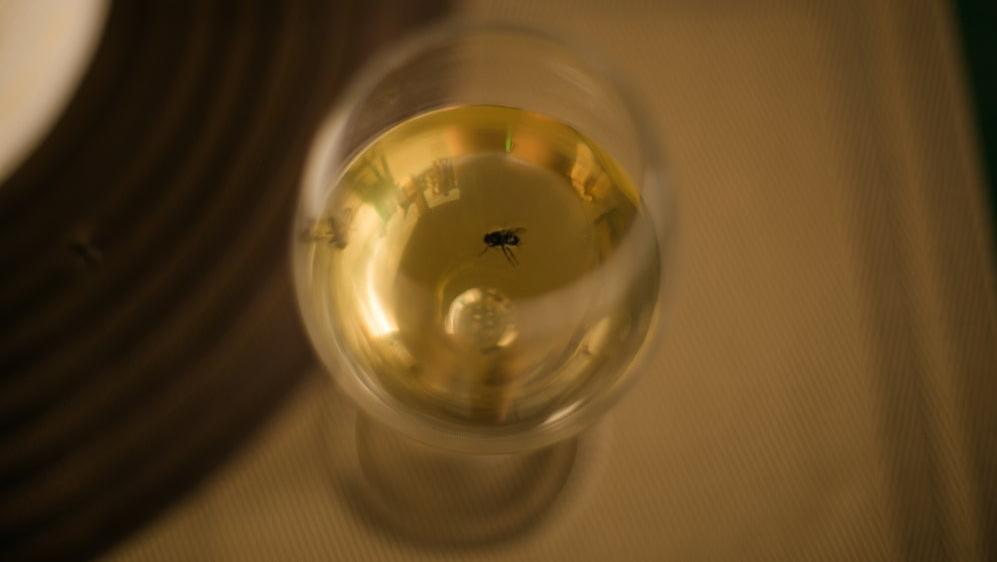9 Of The Most Baffling Food-Related Deaths In History
Food safety is no laughing matter—but these accounts are too preposterous to take seriously.
Look, I'm not here to make light of tragedy. The insipid true crime mega-machine has proven that gawking at others' means of demise is tacky at best, systemically harmful at worst. But there's a difference between hee-hawing at someone's unusual end and poking holes in centuries-old apocrypha. Today, I'm doing the latter, examining some of history's most laughable food-related deaths.
We've got aristocrats choking on flies. We've got extreme carrot overconsumption. We've got frozen chickens. True or not, these questionable accounts prove one thing: Humans have always played with their food—sometimes to deadly consequences.
Chrysippus showed his ass at the dinner table
Hellenistic philosopher Chrysippus of Soli is widely considered to be a co-founder of Stoicism, a movement that prizes utter moral, emotional, and intellectual calm. Unfortunately, all that pent-up emotional expression got Chrysippus in the end. According to the account of Greek philosopher Diogenes, Chrysippus once saw a donkey eating figs and yelled: "Now give the donkey a pure wine to wash down the figs!" At that point, Chrysippus laughed so hard at his own joke that he fell on the ground and seized until he collapsed, apparently expired from the effort.
It does seem like Diogenes was a bit prone to exaggeration; numerous sources have him giving two distinct accounts of the death of Chrysippus. The other account involved drinking over-proof wine, which is admittedly not as flashy as the donkey story. Either way, Chrysippus clearly couldn't handle himself at parties.
Sir Francis Bacon died doing what he loved
Sir Francis Bacon was a man of science, dedicating his life to modern scientific inquiry (and political corruption, but that's another story). According to a 2015 article published in World News Today, an ill-advised experiment likely cost Bacon his life. Per the article, Bacon died in 1626 of pneumonia supposedly contracted while stuffing a chicken with snow. The snow was meant to act as a preservative; instead, it gave Bacon a chill that eventually led to his death. All in the name of science, eh?
George Plantagenet went for a dip
Apocryphal execution methods are a dime a dozen on this, Perez Hilton's internet. If you're into that sort of thing, allow me to introduce you to George Plantagenet, the disgraced Duke of Clarence who was executed by wine for plotting against his brother Edward IV in 1478. Per Royal Central, ol' George was imprisoned in the Tower of London, convicted, and supposedly forcibly drowned in a cask of Malmsey wine. There's no word on the reasoning behind the wine execution, which seems awfully wasteful. Here's hoping he got to enjoy a mouthful before he met his end.
Tycho Brahe ignored his natural urges
When you gotta go, you gotta go. Unfortunately, Danish nobleman and astronomer Tycho Brahe refused to heed nature's call, which likely cost him his life. LiveScience reports that Brahe died from a bladder infection after holding his pee for much, much longer than he should've. Why? Because he didn't want to get up from a banquet table to hit the can. According to a firsthand account cited in The New York Times, "Tycho had refused to leave the banquet to relieve himself because it would have been a breach of etiquette." Must've been some damn fine appetizers on that table.
Too much of a good thing is a bad thing
While the vast majority of these food-related deaths are apocryphal in nature, I can't help but share one verified account from 1974. With recent cases like this one, I'd usually err on the side of discretion—but I'll make an exception for a case that demonstrates the perils of obsessive health fads. I'm referring to the death of 48‐year‐old Basil Brown, a health‐food enthusiast who suffered cirrhosis of the liver after a period of extreme carrot juice consumption.
Per a 1974 article in The New York Times, Brown consumed 70 million units of Vitamin A over the course of 10 days; he also drank about a gallon of carrot juice a day during that time. "His skin was bright yellow when he died," writes the Times, citing a pathologist who called the effects of extreme Vitamin A consumption "indistinguishable from alcoholic poisoning."
Richard Roose finds himself in hot water
Flip to a nondescript page in the 14th edition of the Encyclopedia Brittanica, and you'll find a very brief history of "death by boiling." The article, which is reprinted on Brittanica's website, reads as follows:
"The preamble of the statute of Henry VIII. (which made poisoning treason) in 1531 recites that one Richard Roose (or Coke), a cook, by putting poison in some food intended for the household of the bishop of Rochester and for the poor of the parish of Lambeth, killed a man and woman. He was found guilty of treason and sentenced to be boiled to death without benefit of clergy. He was publicly boiled at Smithfield."
In other words, a ne'er-do-well cook by the name of Richard Roose (Dicky Roose!) found himself in hot water for attempting to poison a man of the cloth. For that, Roose suffered a most unfortunate fate: he, himself, became the soup.
Enraged servers strike back
Picture this: It's summer 1918, and you're a server at an upscale Chicago eatery. It's hot, your tuxedo is starchy, and the customers can't tip for shit. That's when you get an idea: you'll poison the suckers. Just a little—enough to knock 'em out for an hour or prompt an especially colorful bout of diarrhea. Enough to teach 'em a lesson.
Per a 2018 article published in the Chicago Tribune, that's exactly what happened. Tribune reporter Christopher Borrelli writes that, early in summer 1918, cops raided offices of a Chicago waiters union and "rounded up 100 servers on the suspicion of poisoning the customers at restaurants, clubs and hotels across the city." An undercover private detective busted the waiters, who had been buying 20-cent packets of a powdery substance that produced unsavory side effects when sprinkled onto food. The catalyst for the bust: the death of a police officer in the Loop who fell ill after eating a tainted bowl of soup. While luckily no one was killed in the scam, for Chicago diners it might have skewed dangerously close to a baffling food-related death.
Henry I eats one too many eels
Ever looked an eel in the eye and felt the urge to eat yourself sick? Me neither—but Henry I loved the slippery guys. The monarch is said to have indulged in a "a surfeit of lampreys" (the words of his designated chronicler, Henry of Huntingdon) against the advice of his royal doctor. Unfortunately, the king fell ill and died soon after indulging in the lamprey feast. Today's scholars believe that the chronicler may have been exaggerating; regardless, what a way to go.
Waiter, there’s a fly in my—*gag*
As a person who lives alone, I'm terrified of choking. One minute, you're enjoying a nice piece of saltwater taffy and watching reality television; the next, you're clawing at your throat as your snack becomes your death. It's an undignified end, to be sure—and even more undignified if you choke on something objectively ridiculous. Like, um, a fly.
Legend has it that Pope Adrian IV, the only Englishman to ever hold down the popedom, died suddenly after choking on a fly that had landed in his wine. Today's historians have their doubts; most feel that the pope actually died of inflammation of the tonsils. Either way, that's one unlucky pope.
